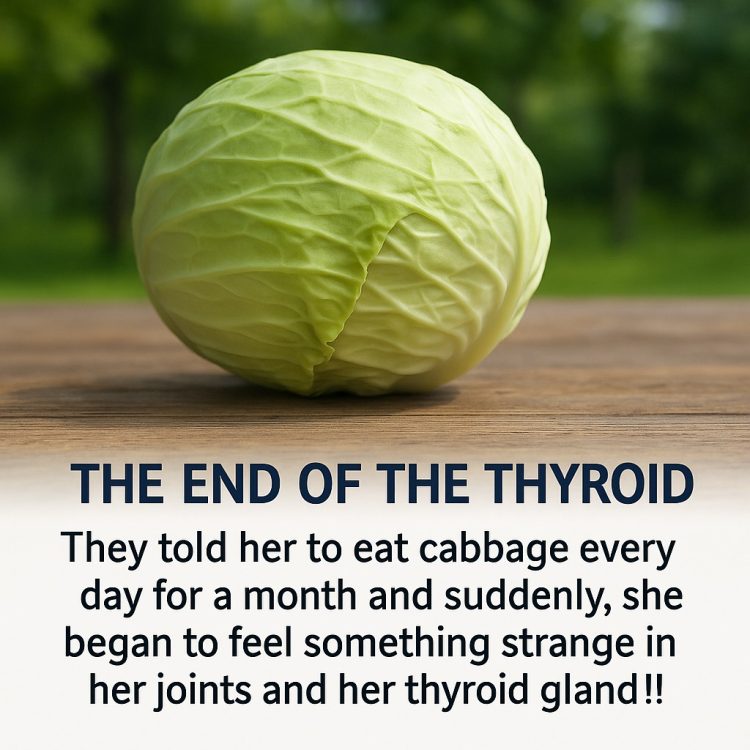In the pursuit of a healthy lifestyle, it’s common to hear advice about foods that may have specific benefits or potential risks for our health. One vegetable that has stirred debate on social media is cabbage. Some claim that eating cabbage regularly could affect thyroid function, leading many to wonder if they should avoid it entirely. In this article, we’ll explore the topic and clarify the facts based on scientific evidence.
Cabbage and Its Nutritional Properties
Cabbage is a nutrient-rich cruciferous vegetable. It’s high in vitamins C and K, fiber, antioxidants, and bioactive compounds that can promote overall health. It’s also very low in calories, making it a great choice for those trying to maintain a healthy weight. Eating cabbage can benefit the immune system, digestion, and heart health.
However, its reputation as a health food has been challenged by claims of possible negative effects, particularly regarding the thyroid. While these claims should be examined critically, it’s essential to rely on verified information and the guidance of health professionals.
Glucosinolates: Are They Harmful to the Thyroid?
Like other cruciferous vegetables, cabbage contains compounds called glucosinolates, which have been identified as potentially harmful to the thyroid. These compounds can interfere with iodine absorption—an essential mineral for producing thyroid hormones. In diets very high in cruciferous vegetables combined with iodine deficiency, there may be a risk of hypothyroidism, especially in susceptible individuals.
That said, it’s important to note that a significant amount of these vegetables would need to be consumed for any notable adverse effect to occur—particularly if your diet is balanced and rich in iodine. Many people regularly eat cabbage, broccoli, and cauliflower without experiencing any thyroid problems.
Listen to Your Body: Consult a Professional
If you’ve started eating cabbage regularly and notice changes in your health—such as joint discomfort or symptoms related to the thyroid—it’s important to consult a doctor or nutritionist. They can help determine whether there’s a link between your diet and your symptoms, and suggest appropriate solutions. Everyone is different and may react differently to certain foods.
Safely Including Cabbage in Your Diet
If you choose to include cabbage in your meals, here are some tips for safe and healthy consumption:
-
Moderate your intake: For most people, eating cabbage in moderation shouldn’t be a problem. Enjoy it in salads, soups, or as a side dish.
-
Variety is key: Maintain a varied diet with a wide range of fruits and vegetables—not just cabbage.
-
Cook it properly: Cooking cabbage can help reduce glucosinolate levels, making it safer for those concerned about thyroid health.
Simple and Healthy Recipe: Cabbage and Carrot Salad
see continuation on next page
